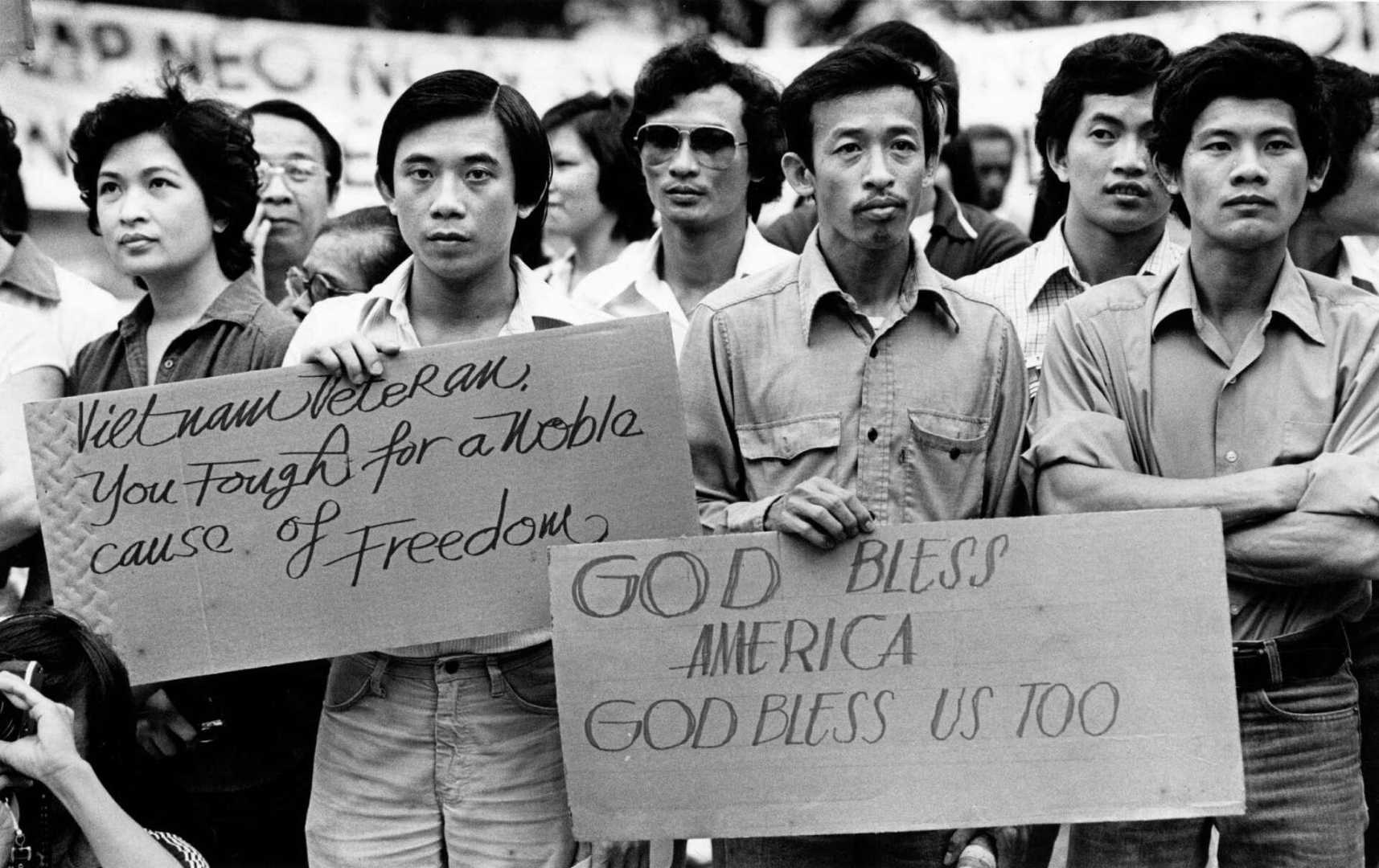World
Houston’s Vietnamese Community Marks 50 Years Since Fall of Saigon

HOUSTON, Texas — Fifty years after the Fall of Saigon on April 30, 1975, Houston‘s Vietnamese community continues to feel the impact of that historic moment. This significant anniversary is observed by many as a time to reflect on the sacrifices made during the Vietnam War and the ongoing struggles of refugees seeking a new life in America.
Nikki Tran, a restaurateur originally from Ho Chi Minh City, is among those who feel the lasting effects of the war. After fleeing with his family to the United States, he established himself in Houston’s culinary scene, pioneering Viet-Cajun cuisine. Tran describes Houston as a ‘global food mecca’ and emphasizes how vital Vietnamese culture is to the city.
The Houston area is now home to the largest Vietnamese population outside California, with estimates ranging from 100,000 to 150,000 people. Many arrived as refugees following the fall of Saigon, which marked the end of the Vietnam War and ignited one of the world’s most significant refugee crises.
The day is often referred to as ‘Black April’ by South Vietnamese refugees. Kiet Huynh, a 71-year-old veteran, recounted how the day symbolizes loss. ‘It reminds me how many people in Vietnam died that day, and how many children,’ he shared, recalling the traumatic experiences during and after the war.
Many in the Vietnamese community, including Assemblyman Tri Ta, view April 30 as a day of duality—one marking not just loss but the beginning of a new journey. Ta recalled, ‘That’s the day we left Vietnam for freedom, and for the last 50 years, the Vietnamese overseas continue to fight for freedom.’
Houston’s Little Saigon has flourished as a cultural and commercial hub for Vietnamese Americans. Local businesses have thrived amid challenges, contributing to the city’s rich diversity. Yet, an analysis from Rice University revealed that Vietnamese Americans remain among the poorest Asian groups in the area, with significant economic disparities.
The community’s political representation, while improving, still lags behind that of other Vietnamese American enclaves like California’s Orange County. Bryan Chu, president of the Vietnamese Community of Houston, commented, ‘We don’t have the number of representatives for our population here.’ He encourages more community members to seek local office and engage politically.
As April 30 approaches, both mourning and celebrations take place. A recent freeway dedication honoring Little Saigon symbolizes the pride residents take in their heritage. Huynh reflects on this year’s commemoration, stating, ‘We continue to remember our past, and rebuild for our future,’ showcasing resilience in the face of adversity.
The significance of these events emphasizes a generational shift in perspectives about the Vietnam War and the meaning of Black April. Young Vietnamese Americans increasingly identify with their heritage, seeking to understand and preserve their history while looking forward to a better future.












